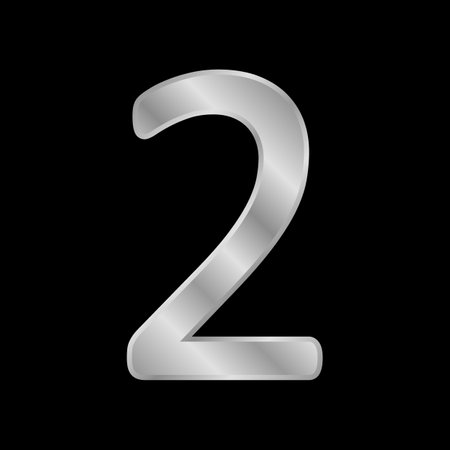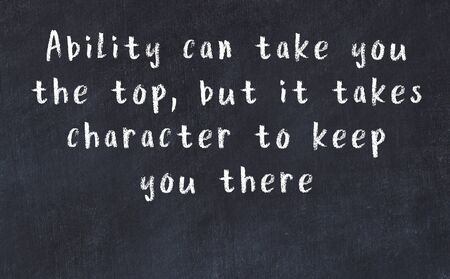1. Understanding Destiny Numbers
When it comes to making big career decisions in the United States, many people are turning to numerology for extra guidance. At the heart of numerology lies the concept of destiny numbers. But what exactly are destiny numbers, and how do they fit into American culture? Let’s break it down in a way that’s easy to understand.
What Are Destiny Numbers?
Destiny numbers are single-digit numbers (from 1 to 9) calculated from your full birth name. Each number is believed to reveal unique traits, talents, and potential life paths, including possible career directions. The process involves assigning numerical values to each letter of your name and reducing the total to a single digit.
How to Calculate Your Destiny Number
| Letter | Numerical Value |
|---|---|
| A, J, S | 1 |
| B, K, T | 2 |
| C, L, U | 3 |
| D, M, V | 4 |
| E, N, W | 5 |
| F, O, X | 6 |
| G, P, Y | 7 |
| H, Q, Z | 8 |
| I, R | 9 |
Add up the values for each letter in your full birth name and then reduce the sum until you get a single digit. For example: If your name adds up to 29: 2 + 9 = 11; then 1 + 1 = 2. So your destiny number is 2.
The Significance of Destiny Numbers in Numerology
In numerology, destiny numbers are thought to uncover your life’s purpose and strengths. They can offer clues about which jobs or industries might fit your personality best. For instance, someone with a destiny number of 1 might be drawn toward leadership roles or entrepreneurship.
Common Traits Associated With Each Destiny Number
| Destiny Number | Main Traits | Possible Career Paths (US Culture) |
|---|---|---|
| 1 | Independent, ambitious, leader | Business owner, executive, coach |
| 2 | Cooperative, diplomatic, supportive | Counselor, mediator, HR specialist |
| 3 | Creative, expressive, sociable | Artist, marketer, public relations manager |
| 4 | Practical, organized, reliable | Engineer, accountant, project manager |
| 5 | Adventurous, adaptable, freedom-loving | Travel blogger, sales rep, journalist |
| 6 | Caring, responsible, nurturing | Nurse, teacher, social worker |
| 7 | Analytical, thoughtful, spiritual seeker | Researcher, scientist, therapist |
| 8 | Ambitious, efficient, authoritative | CFO, real estate agent, manager |
| 9 | Compassionate, idealistic, humanitarian | Counselor, non-profit director, volunteer coordinator |
The Role of Destiny Numbers in American Culture
Naturally curious about self-improvement and personal growth tools, Americans have embraced numerology as a way to gain more insight into their lives and career paths. While not everyone takes destiny numbers literally or uses them as the sole basis for major decisions like choosing a career or changing jobs in the US workforce—they can serve as fun conversation starters or an extra layer of self-reflection alongside traditional assessments like personality tests or career counseling.
2. Numerology in the American Workplace
In the United States, numerology is gaining popularity as a personal development tool, especially among people seeking alternative ways to guide their career choices. Destiny numbers, calculated from a person’s full birth name, are thought by some to reveal insights about an individual’s strengths, weaknesses, and ideal career paths. While mainstream corporate America does not officially recognize numerology as part of its hiring or human resources practices, many individuals use it privately to help with important decisions.
How Destiny Numbers Influence Career Guidance
Numerology coaches and career advisors sometimes incorporate destiny numbers into their sessions. They may suggest that certain destiny numbers align better with specific types of work environments or roles. For example, someone with a destiny number 1 might be advised to pursue leadership roles, while a person with a destiny number 6 could be encouraged toward caregiving professions.
Common Interpretations of Destiny Numbers in Careers
| Destiny Number | Suggested Career Paths | Key Traits |
|---|---|---|
| 1 | Executive, Entrepreneur, Manager | Leadership, Initiative |
| 2 | Counselor, Mediator, Human Resources | Cooperation, Diplomacy |
| 3 | Writer, Public Relations, Entertainer | Creativity, Communication |
| 4 | Engineer, Administrator, Project Manager | Organization, Reliability |
| 5 | Salesperson, Marketer, Travel Agent | Adaptability, Freedom-loving |
| 6 | Nurse, Teacher, Social Worker | Caring, Responsibility |
| 7 | Researcher, Scientist, Analyst | Introspection, Analytical thinking |
| 8 | Business Owner, Financial Advisor, Executive | Ambition, Authority |
| 9 | Counselor, Artist, Philanthropist | Compassionate, Humanitarianism |
The Role of Numerology in Modern American Work Culture
While numerology is still considered unconventional in most workplaces across the US, its influence is visible among freelancers and entrepreneurs who value personal growth and self-awareness. Some employees use their destiny number readings to boost confidence during job transitions or when negotiating for new positions. Online communities and social media groups dedicated to numerology share tips on how to blend these insights into career planning without conflicting with professional standards.
Numerology and Career Decision-Making: A Personal Tool Rather Than a Corporate Strategy
Naturally, most hiring managers and recruiters rely on resumes and interviews instead of numerological analysis. However, for individuals who believe in this practice or enjoy exploring new self-discovery tools, destiny numbers can offer an additional perspective when making big career moves or considering new opportunities.

3. Destiny Numbers and Popular US Career Paths
How Destiny Numbers Influence Career Choices in America
In the United States, people are drawn to a wide range of careers based on their skills, interests, and sometimes, their destiny numbers. Destiny numbers—calculated from your full birth name—are believed by many to shape personalities and tendencies, which can influence the types of professions you might find fulfilling. Let’s look at some common career paths in the US and explore how different destiny numbers may naturally gravitate toward them.
Popular US Careers and Matching Destiny Numbers
| Destiny Number | Common Traits | Potential US Career Paths |
|---|---|---|
| 1 – The Leader | Independent, ambitious, confident | Entrepreneur, CEO, Project Manager, Lawyer |
| 2 – The Diplomat | Cooperative, sensitive, supportive | Human Resources Specialist, Counselor, Nurse, Mediator |
| 3 – The Communicator | Creative, expressive, social | Marketing Specialist, Teacher, Journalist, Public Relations Manager |
| 4 – The Organizer | Practical, detail-oriented, reliable | Accountant, Engineer, Data Analyst, Administrative Assistant |
| 5 – The Adventurer | Adaptable, freedom-loving, energetic | Sales Representative, Travel Consultant, Event Planner, Real Estate Agent |
| 6 – The Nurturer | Caring, responsible, protective | Teacher, Social Worker, Healthcare Provider, Childcare Worker |
| 7 – The Seeker | Analytical, introspective, curious | Research Scientist, IT Specialist, Philosopher, Professor |
| 8 – The Achiever | Goal-oriented, resourceful, authoritative | Financial Analyst, Business Executive, Real Estate Developer, Investment Banker |
| 9 – The Humanitarian | Compassionate, idealistic, generous | Nonprofit Director, Therapist, Environmental Advocate, Community Organizer |
A Closer Look: American Work Culture and Destiny Numbers
The US is known for its diverse job market and emphasis on personal achievement. People with destiny number 1 often thrive in competitive environments like Silicon Valley startups or law firms. Those with destiny number 2 may feel more at home in collaborative workplaces such as hospitals or nonprofit organizations. Creative fields in cities like Los Angeles or New York are natural magnets for communicative number 3s. Meanwhile, practical number 4s are well-suited for tech hubs and finance sectors where organization is key.
The Role of Self-Discovery
Your destiny number isn’t a strict rulebook but can be a helpful guide when exploring options in the vast American job landscape. By understanding your core strengths and values tied to your destiny number—and matching them with the most popular US career paths—you can make choices that lead to greater satisfaction and long-term success.
4. Personal Stories and Case Studies
Destiny numbers have inspired many Americans to reflect on their career paths and choices. In this section, we share real-life stories and testimonials from people across the United States who believe that their destiny numbers played a key role in shaping their professional journeys. These examples offer unique insights into how numerology can influence career decisions in a modern American context.
Real-Life Examples of Destiny Numbers at Work
| Name | State | Destiny Number | Career Path | Personal Story |
|---|---|---|---|---|
| Jessica T. | California | 1 | Entrepreneur | Jessica always felt drawn to leadership roles. After learning her destiny number was 1, she embraced her entrepreneurial spirit and started her own marketing firm. She credits her numerology reading for giving her the confidence to take risks. |
| Michael R. | Texas | 7 | Research Scientist | Michael was always curious about the world and enjoyed solving puzzles. Discovering his destiny number as 7 made him pursue a career in scientific research, where he could satisfy his thirst for knowledge every day. |
| Amanda S. | New York | 3 | Creative Director | Amanda struggled with choosing between a stable job and her passion for art. After learning about her destiny number, she decided to follow her creative instincts and now leads a design team in a top advertising agency. |
| Carlos M. | Florida | 9 | Nonprofit Manager | Carlos always wanted to make a difference. Realizing his destiny number was 9, he felt reassured about dedicating his life to helping others through nonprofit work. |
Testimonials from Americans Influenced by Destiny Numbers
“Numerology Helped Me Understand My Strengths”
Karen L., Illinois: “When I learned my destiny number was 5, everything made sense. Ive always thrived in jobs that let me travel and meet new people. Now, I work as a corporate trainer, which suits my adventurous side perfectly.”
“Gave Me the Confidence to Change Careers”
Derrick P., Georgia: “I was stuck in a job I didnt enjoy. A friend suggested looking into my destiny number, which turned out to be 8—linked to ambition and management. That gave me the push to go back to school and become a business consultant.”
The Role of Destiny Numbers in Career Guidance
The stories above highlight how some Americans use destiny numbers as an extra layer of insight when making important career decisions. While not everyone believes in numerology, for these individuals, understanding their numbers provided clarity and encouragement as they navigated their professional lives.
5. Weighing the Scientific Validity
Skepticism Around Destiny Numbers
In the United States, many people are curious about numerology and destiny numbers, especially when it comes to career choices. However, there’s a healthy dose of skepticism, too. Most scientists and psychologists view numerology as a pseudoscience, meaning it isn’t based on scientific evidence or research. For those who value facts and data in decision-making, this can be a big deal. American culture often emphasizes personal responsibility and logical thinking, so relying solely on destiny numbers for major life decisions—like choosing a job—can raise eyebrows.
The Science Perspective
Scientific studies have not found a direct link between destiny numbers and career success or satisfaction. Career outcomes in the US are usually tied to factors like education, skills, networking, personality, and sometimes even just being in the right place at the right time. Numerology doesn’t account for these practical elements. Here’s a simple comparison:
| Approach | How It Works | Common in the US? |
|---|---|---|
| Numerology (Destiny Numbers) | Bases decisions on birth dates and names | Less common; more personal or spiritual use |
| Career Counseling | Focuses on skills, interests, values, market trends | Very common; widely accepted by schools and businesses |
| Self-Assessment Tools (e.g., Myers-Briggs) | Uses personality tests to guide choices | Popular; used by many employers and colleges |
Advice for Considering Numerology in Career Planning
If you’re interested in using destiny numbers to help with your career decisions, it’s important to keep perspective:
- Treat numerology as one tool among many. Consider your education, experience, interests, and job market realities too.
- Stay open-minded but critical. Enjoy what numerology offers, but don’t ignore practical advice from mentors or professionals.
- Avoid making all major decisions based only on numerology. Use it as inspiration or reflection rather than a strict rulebook.
- Talk with others who have different viewpoints. This can help you balance intuition with real-world advice.
Bottom Line for Americans Curious About Destiny Numbers
While destiny numbers can be fun and even meaningful for some people exploring career paths in the US, most experts recommend combining them with proven strategies like education and networking. That way, you get the best of both worlds: inspiration from numerology and confidence from practical planning.


